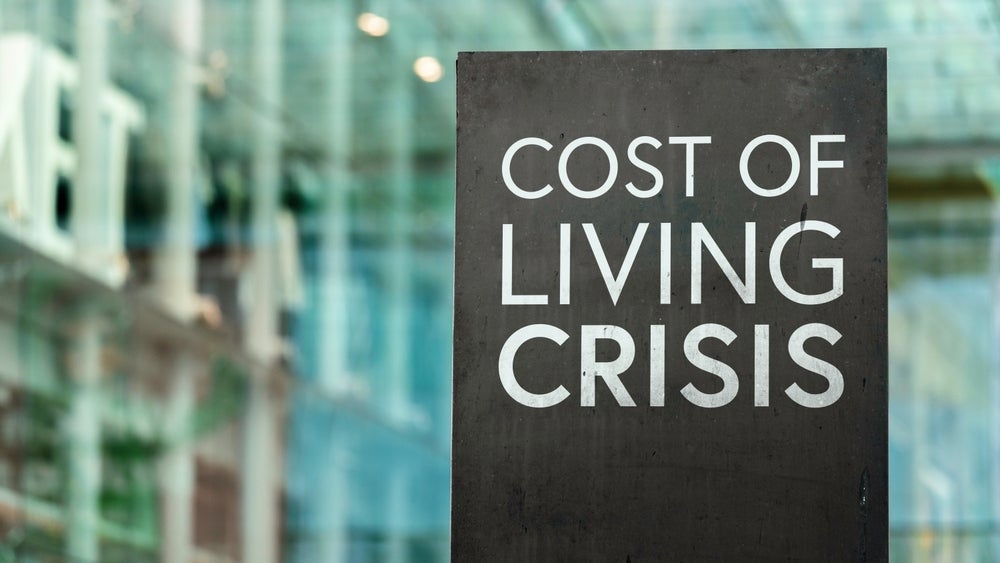
The cost-of-living crisis among groups such as women and Gen Z, who in some cases have considered self-harm due to their financial stresses, caused by inflation, debt and lack of savings is pretty dire, according to research released by Vario Bank.
By some estimates, more than half of Americans are currently living paycheck-to-paycheck. This number has grown since the Covid pandemic and the high inflation of the past two years. Research from institutions like the Financial Health Network, GFLEC, TIAA, and others have made it clear that the issue of ‘financial fragility’ in America is an important one. Moreover, work needs to be done to support the population of people living paycheck-to-paycheck to prevent them from falling into debt traps and poverty traps that can keep them stuck for decades, and even generations.

Access deeper industry intelligence
Experience unmatched clarity with a single platform that combines unique data, AI, and human expertise.
The research to date has shed light on the problem. It has pointed to the need for public policies and financial services that support the resiliency of American households. They stop short, however, of offering specific advice to the private sector for how to best serve this large and diverse population. Varo Bank has partnered with Morning Consult and THRIVE Financial Empowerment Center to take a deeper look into the financial health and well-being of people living paycheck-to-paycheck in America. The purpose of this work was to learn more about who they are, what they are experiencing, and what resources (financial and non-financial) are most critical to helping them bounce back when financial hardship hits.
Varo Bank Wealth Watch Insights survey: key takeaways
Women are significantly more likely than men to be living paycheck-to-paycheck, (women = 59%, men = 41%). Of those who were considered financially fragile, a full two-thirds (67%) were women.
There is a significant, inverse relationship between financial fragility and trust in financial institutions. A majority (74%) of respondents believe that the US financial services industry is ‘rigged against the poor’. This may lead those who feel financially vulnerable to be more wary of trusting financial institutions.
Financial Stress and Physical Health: 35% of people living paycheck-to-paycheck report that financial stress has had a negative impact on their physical health in the past 6 months. Of these people, 59% reported sacrificing doctor’s visits due to the cost. This creates a negative feedback loop between financial stress and health problems.

US Tariffs are shifting - will you react or anticipate?
Don’t let policy changes catch you off guard. Stay proactive with real-time data and expert analysis.
By GlobalDataFinancial Stress & Mental Health: 40% of respondents report that financial stress has negatively impacted their mental health. Fifteen percent (15.6%) have considered self-harm due to financial stress. 15% have sacrificed mental health care due to the cost, and 1 in 5 people (21.5%) reported self-medicating due to financial stress. Men were significantly more likely than women to report self-medicating and considering self-harm.
Sacrificing Basic Needs: Nearly half of respondents (48.2%) have sacrificed at least one basic need (doctor’s visits, necessary medications, mental health care, healthy food, or safe housing) in the past six months due to the cost. Some 28% have sacrificed at least two of these basic needs. The greatest financial concerns for this population are a) covering basic costs of living (chosen by 34.5%), b) not enough savings (chosen by 16%), and c) too much debt (chosen by 14%).
Gen Z: Too Embarrassed to ask for Financial Help
38% of Gen Z respondents have avoided asking for help with their finances because they feel embarrassed or ashamed. There was no meaningful difference in financial fragility between political parties. People in all parties were inclined to cite the daily cost of living as their greatest financial concern. People with strong levels of social support and financial self-efficacy were significantly less likely to be financially fragile, even when controlling for age, income, gender, education, and race.
Resiliency Resources and Emotional Well-being: those with low social support scores and high incomes were emotionally worse off than those with low incomes but high social support scores.
Big finance, little consumer: There is an opportunity to serve this population by improving financial confidence, community connections, and easing the costs of day-to-day living.
The full report is available via this link







